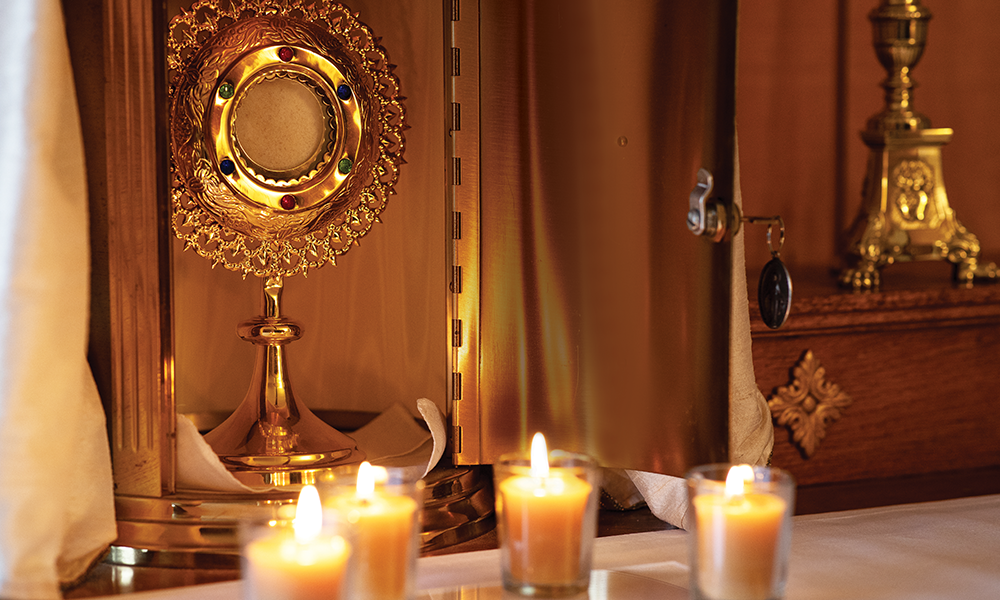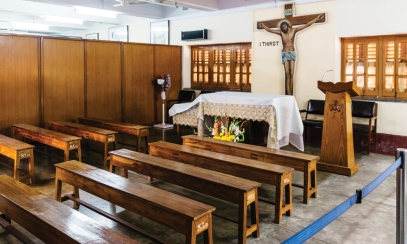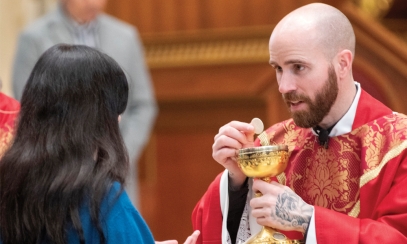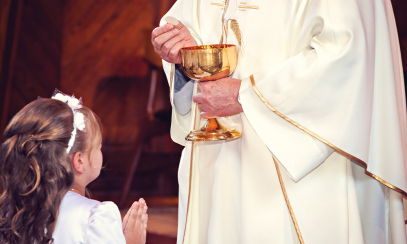
Mass and Eucharistic Adoration
Two Complementary Gifts
Two Complementary Gifts
Question: “Why does the Church encourage adoration of the Eucharist outside of Mass?”
Question: “Why does the Church encourage adoration of the Eucharist outside of Mass?”
Answer: While the Mass is the highest form of worship, adoring Jesus in the Eucharist outside of Mass allows us to quietly abide in his presence and connect with him "heart-to-heart."
Additionally, recent research shows that adoration before the Blessed Sacrament is one of the strongest contributing factors in the journeys of those called to a priestly or religious vocation.
As Pope St. John Paul II says, "The Eucharist is a priceless treasure: by not only celebrating it but also by praying before it outside of Mass, we are enabled to make contact with the very wellspring of grace."
Each spring, many Catholic parishes throughout the world keep the beautiful custom of having a procession of the Blessed Sacrament on the Solemnity of the Most Holy Body and Blood of Christ, often referred to as “Corpus Christi” (Latin for “the Body of Christ”). This allows people to publicly adore Christ, truly present in the Eucharist.
Unfortunately, some theologians in the 20th century started casting a shadow of suspicion regarding Eucharistic adoration outside of Mass – arguing that the consecrated Host is only meant to be eaten, not gazed upon. They expressed concern that Eucharistic adoration outside of Mass either diminishes the importance of the Mass or sets up a competition with the Eucharistic sacrifice, which Vatican II calls the “source and summit of the whole Christian life.” (Lumen Gentium, 11)
Pope Benedict XVI offers a helpful clarification on the intrinsic relationship between the Mass and Eucharistic adoration in Sacramentum Caritatis, no. 66, explaining that Eucharistic adoration naturally flows from the Mass, which is “the Church’s supreme act of adoration.” Receiving the Lord Jesus in Holy Communion “means adoring him whom we receive.
“The act of adoration outside Mass prolongs and intensifies all that takes place during the liturgical celebration itself. Indeed, ‘only in adoration can a profound and genuine reception [of the Eucharist] mature. And it is precisely this personal encounter with the Lord that then strengthens the social mission contained in the Eucharist [carrying out works of mercy, peace and justice based on the Church's teaching on the dignity of every human being], which seeks to break down not only the walls that separate the Lord and ourselves, but also and especially the walls that separate us from one another.’”



